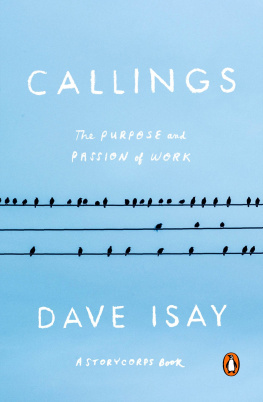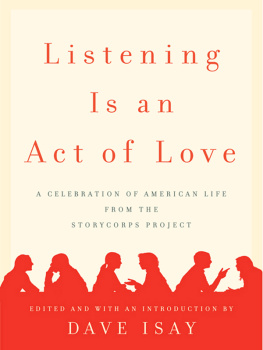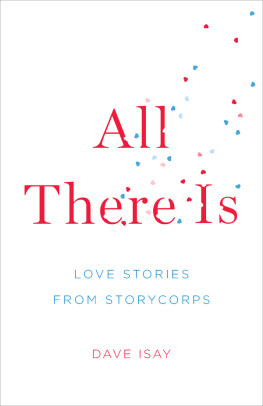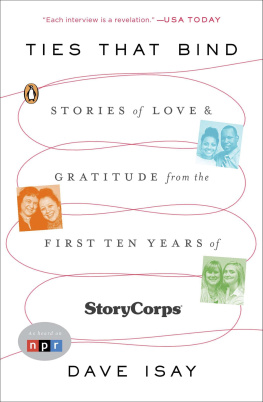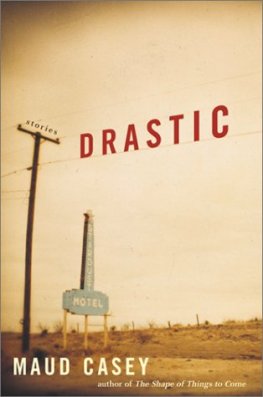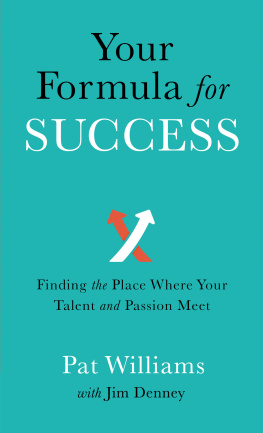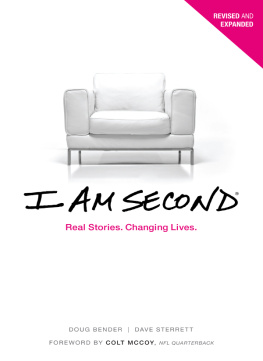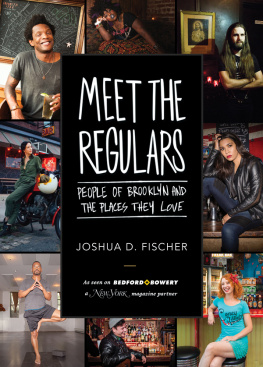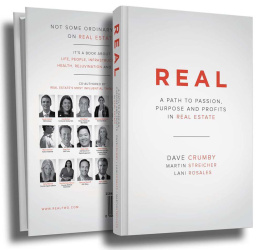Listening Is an Act of Love: A Celebrationof American Life from the StoryCorps Project
Ties That Bind: Stories of Love and Gratitude from the First Ten Years of StoryCorps
First published in the United States of America by Penguin Press, an imprint of Penguin Random House LLC, 2016
Copyright 2016 by StoryCorps, Inc.
Penguin supports copyright. Copyright fuels creativity, encourages diverse voices, promotes free speech, and creates a vibrant culture. Thank you for buying an authorized edition of this book and for complying with copyright laws by not reproducing, scanning, or distributing any part of it in any form without permission. You are supporting writers and allowing Penguin to continue to publish books for every reader.
DEDICATED TO EVERYONE WORKING TO FIND AND FOLLOW THEIR CALLINGS. MAY YOU LIVE WITH COURAGE ALWAYS.
INTRODUCTION
T he idea for Callings came four years ago. It was around Mothers Day, and our StoryCorps book about moms had just come out. I was lucky enough to go on The Colbert Report to talk about it. My wife was pregnant with our second child at the time. The day after I did the show, we had an appointment with our beloved ob-gyn, Austin Chen.
I adored this woman from the minute I met her: tiny, fierce, mercilessly blunt, brilliant at her work. I knew a little bit about her. I knew that she worked ferociously hard. I knew that she biked everywhere she wentto her office, to the hospital in the middle of the night to deliver babies. I knew that she had made the commitment to personally deliver the babies of every single one of her patients, which meant she was on call twenty-four hours a day, 365 days a year. She told me that she had tried to leave town only once in the twelve years since shed started her practice, to say good-bye to her father, who was dying. But while she was there, a patient called to say she was in labor. Dr. Chen left so she could meet her patient at the hospital. She was not able to be with her dad when he died.
Dr. Chen had seen me on TV the night before our appointment, and as we were leaving she said, I wish I had done something important enough with my life to be on Colbert. I was stunned. I told her that as far as I was concerned, if you took everyone who had ever been on the show and added up everything theyd accomplished, they wouldnt hold a candle to her. She shook her head and ushered me out of her office.
Later that day I had a meeting with our publisher to figure out the next StoryCorps book. I told her about my conversation with Dr. Chen earlier in the day. We looked at each other and we knew we had our answerthe book you now hold in your hands: Callings. (A year later, I recorded a StoryCorps interview with Dr. Chen about her work, which you can read on page 142.)
I am thankful every single day that I was lucky enough to find my calling as a young man. I was twenty-two years old, headed to medical school, when I fell into public radio completely by accident. The moment I pressed the button on the tape recorder to begin my first interview, I had an overwhelming sense that I had found what I was going to do for the rest of my life. A few weeks later I withdrew from medical school. It was a terrifying decision, but one of the best Ive ever made. My fate was sealed.
The theme of work threads throughout StoryCorps dozen-year history. The legendary oral historian Studs Terkel, whose most famous book is Working: People Talk About What They Do All Day and How They Feel About What They Do, cut the ribbon on our first StoryCorps booth in Grand Central Terminal. We know who the architect of Grand Central was, shouted a stone-deaf ninety-one-year-old Studs at the launch. But who were the brick masons? Who swept these floors? Studs implored us to celebrate these stories, and weve devoted ourselves absolutely to the task since that day.
Work, Studs wrote, is about the search for daily meaning as well as daily bread, for recognition as well as cash, for astonishment rather than torpor; in short, for a sort of life rather than a Monday through Friday sort of dying. Callings is in many ways a 257-page proof of Terkels proposition.
Many of the sixty-five thousand conversations recorded in StoryCorps booths across America over the past dozen years have dealt with the subject of work, and weve dug deep into our archive to cull the most powerful stories and the wisest words from those interviews for this collection. The following pages are filled with the stories of everyday people who have foundand often foughttheir way to doing exactly what they were meant to do with their lives. These are the voices of men and women of varied age, geographies, and backgrounds, driven by a fire from within to find meaning in their work.
Listening has always been at the heart of StoryCorps mission. And, as youll read in these stories, finding what youre meant to do with your life has a lot to do with careful listeningto that quiet voice inside that speaks to who you really are. As the writer and teacher Parker Palmer wrote in his book Let Your LifeSpeak, Before you tell your life what you intend to do with it, listen for what it intends to do with you.
Building StoryCorps has been the most difficult thing Ive ever donereplete with moments of terror and doubt. But its also been the most rewarding and nourishing work experience of my life. I cant imagine doing anything else. One of the original employees who helped launch StoryCorps described the work as: Hard work. Blood work. Love work. Which is an apt description for the work lives of so many who are fortunate enough to find their callings.
For those of you in search of your calling, consider yourself warned: this pursuit takes discipline, resilience, sacrifice, and tremendous hard work. At those moments when the fear creeps in and youre unsure of where to go or what to do next, remember to trust your instincts always. Allow yourself to be led by what truly moves you. And dont compromise your valuesever.
Whether youve found your calling, are on the journey, or have lost your way, may the heroes of this bookwhether astronaut, ballpark beer vendor, or ob-gynhelp remind you of the importance of finding meaning in your work. May their words help give you the strength to listen to that still, small voice insidethat voice which can help you discover the work that you were born to do.
Dave Isay
AUTHORS NOTE
T he following stories were edited from transcripts of Story Corps interviews that typically run forty minutes. We aimed to distill these interviews without altering the tone or meaning of the original sessions. At times tense and usage were changed, and a word or two was added for clarity. We did not use ellipses to indicate omitted text; in the following pages ellipses indicate speech trailing off or a pause in speech or conversation.

